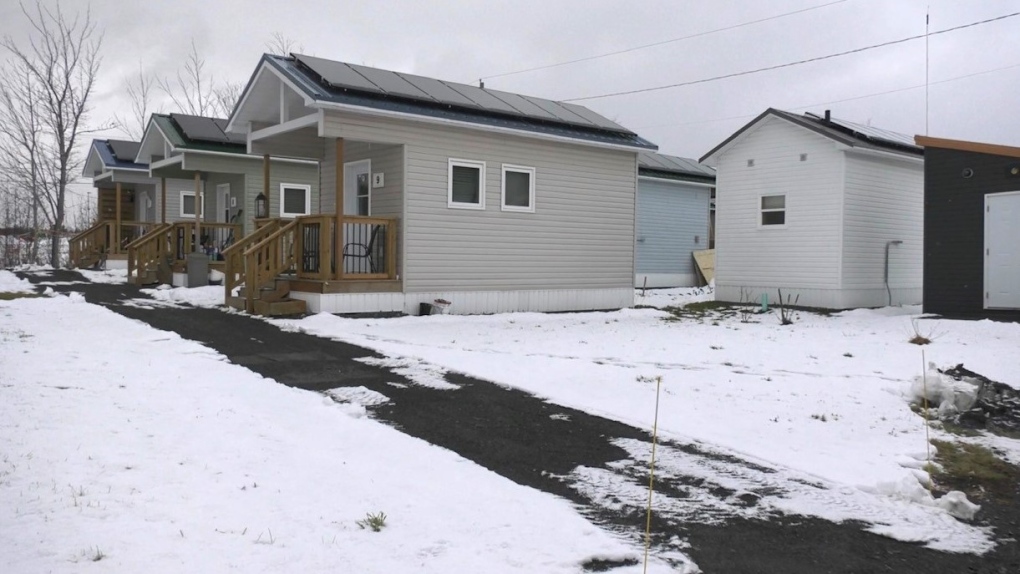- Reaction score
- 18,874
- Points
- 1,360
Ah, tracking. Yeah, this seems to have a bit more nuance to it than a blindside…although still…the RM must not have a PR team…You're correct. That's my question, who did it; and without a permit ?

Ah, tracking. Yeah, this seems to have a bit more nuance to it than a blindside…although still…the RM must not have a PR team…You're correct. That's my question, who did it; and without a permit ?
I have to agree with you. 9 years seems pretty generous before finally being taken to task.Evicting early in the school year/ start of winter is nigh on indefensible, and the kids should not have to bear the brunt of this, but I'd have to say that "what comes across" the most out of that article is how well it was written to evoke sympathy and how little effort went in to researching and accurately depicting what is almost certainly a messy conflict in which McDermot-Fouts' hands are considerably less clean than portrayed.
10 minutes in the Whitehead site council minutes would have shown the the reporter that council denied the application for Hydro service to be added to the property in 2014 right around the same time that the permit/mobile home application was denied. 2016 a hydro service was approved- expressly for agricultural livestock use. It also would have let them see council statements about the order. So they applied, got denied (reasons not given, neither in this article or another I found), went ahead did it anyway, got found out years later, multi-year legal fight begins.
This looks a lot more like 9 years of thumbing their nose at the RM living in an unpermitted dwelling with a hydro service they lied about to get finally came to a head vs. "9 years later now it's an issue."
Edit- story from 2014
Sounds like a dispute with neighbours that don't want anyone building on the land next to them, that turned into a legal mess. Both parties have likely done dumb things, but kicking people out on 30 Oct, is a pretty low move.Evicting early in the school year/ start of winter is nigh on indefensible, and the kids should not have to bear the brunt of this, but I'd have to say that "what comes across" the most out of that article is how well it was written to evoke sympathy and how little effort went in to researching and accurately depicting what is almost certainly a messy conflict in which McDermot-Fouts' hands are considerably less clean than portrayed.
10 minutes in the Whitehead site council minutes would have shown the the reporter that council denied the application for Hydro service to be added to the property in 2014 right around the same time that the permit/mobile home application was denied. 2016 a hydro service was approved- expressly for agricultural livestock use. It also would have let them see council statements about the order. So they applied, got denied (reasons not given, neither in this article or another I found), went ahead did it anyway, got found out years later, multi-year legal fight begins.
This looks a lot more like 9 years of thumbing their nose at the RM living in an unpermitted dwelling with a hydro service they lied about to get finally came to a head vs. "9 years later now it's an issue."
Edit- story from 2014
Could have easily been an electrician, RP OPs has ED Techs. I know my brother used to do jobs for people back when he was still in.But it looks like the hook-up was approved, but for the cattle outbuilding only. I wonder who MacGuyver’d the mains into the mobile home?
Not sure about MB, but in ON, it would have to be a licensed electrical contractor (LEC)…for ESA-approved work. Pretty sure homeowners themselves can’t mess with a mains supply to a dwelling that would otherwise require a disconnect.Could have easily been an electrician, RP OPs has ED Techs. I know my brother used to do jobs for people back when he was still in.
I don’t doubt that, but the issue appears the legitimacy (lack thereof) of work that was *done with a permit. It’s not just some DIY shed building, electrical done wrong has implications both for those downstream of the work, and upstream to hydro electricians working the supply/distribution side.Wouldn’t be hard for anyone with even a small amount of electrical skills.
Could be, but there's also the fact that not a single member remains from the government that denied their application in 2014, and only one councillor (now Reeve) from the one that approved the livestock/hydro application. Two full election cycles, 3 councils (each with near wholesale turnover). No change in verdict.Sounds like a dispute with neighbours that don't want anyone building on the land next to them, that turned into a legal mess.
Completely agreed. If nothing else an eviction should have been stayed until spring. Ideally avoided all together. But removal of unpermitted structures is a pretty common remedy in situations like this, because otherwise you're tacitly condoning anyone with means and willingness to do whatever the hell they want and pay for forgiveness later.but kicking people out on 30 Oct, is a pretty low move.
Not sure about MB, but in ON, it would have to be a licensed electrical contractor (LEC)…for ESA-approved work. Pretty sure homeowners themselves can’t mess with a mains supply to a dwelling that would otherwise require a disconnect.
In Ontario, the power company would want evidence that either the ESA or an ESA-approved electrician has approved the work. If it was truly a pre-built (modular/engineered/mobile) home it would be delivered with that approval attached.Wouldn’t be hard for anyone with even a small amount of electrical skills.
Solution: don't have kids.
Yup, and I'm finding that there's a very fine line to walk between instilling the values of independence/ work ethic etc. by raising for and enforcing self-sufficiency (with an end of life wealth transfer) and making early and efficient use of intergenerational wealth through active planning.Generational wealth is a thing, not solely reserved for the Rothchilds and Hiltons of the world.
We bring both our daughters to the financial planning meetings we have with our planner. so they get to see what we are doing with the money and how we try to use it for our and their long term benefit.I plan to use the equity in my house to provide the down-payment for my kid's first home, should that be their desire. As most other home owning parents have done.
My parents didn't own a home, so my VAC blood money- er- disability payout filled in that hole. If I can get them part of the way into building equity rather than handing twice much over in rent to a land lord; money well spent.
Generational wealth is a thing, not solely reserved for the Rothchilds and Hiltons of the world.
Absolutely smart thing to do.We bring both our daughters to the financial planning meetings we have with our planner. so they get to see what we are doing with the money and how we try to use it for our and their long term benefit.
The cause of the Canadian housing affordability crisis has always been pretty simple: There are too few homes.

None of the 1970s property boom was by accident. The sheer volume of new homes hitting the market was the end result of a federal government that openly vowed to put its middle and working classes into respectable accommodation — and actually meant it.
“We must … not only improve the operation of private markets in order to accelerate the total output of housing but we must also stimulate the provision of modest accommodation for low-income people,” Liberal MP Robert Andras — a perennial Pierre Trudeau cabinet member — declared in 1969.
Poverty had been on the upswing throughout the 1960s, and the solution pitched by the Liberal government was to throw up whole cities of new homes practically overnight, so that these growing ranks of Canadian poor would at least have a place to live.
In the 1970s, the housing-assistance activities of the Canadian Mortgage and Housing Corporation “exploded,” according to one history of the era.
A latticework of loan guarantees, tax credits and direct subsidies emerged to put millions of Canadians within reach of home ownership, and the construction market roared into high gear to meet the new demand.
Meanwhile, the Canada Rental Supply Program extended interest-free loans to developers who built social housing, and a firehose of federal monies was directed at subsidized housing projects.
“In the heyday of Canadian social housing from 1965 to 1990, 10 percent of total housing production was non-profit, public or co-operative,” wrote housing analyst Greg Suttor in a 2017 profile of this period.
But if there’s one glaring roadblock preventing Canada from pursuing a second all-out building boom, it’s the fact that today’s municipalities are way more obstinate than their 1970s predecessors. Restrictive zoning laws and other thickets of municipal red tape have largely kneecapped any ability of developers to build with the feverish intensity of the 1970s.
In the 1970s, said Lafleur, “the feds were serious about expanding affordable rental options and the municipalities didn’t really get in the way.”
Cities didn’t get in the way of any new development, really. “The image of rapid growth in … major urban centres was widely accepted in the late 1960s and early 1970s,” read a 1975 report by the Science Council of Canada. Vancouver in the late 1960s and early 1970s was so uncompromisingly pro-development that there exist images of its mayor riding a wrecking ball.

| Population Growth | P=Poekt | ||
| Time Line | 1978 to 2022 | 2015 to 2022 | |
| 2022 Population | P | 38,454,327 | 38,454,327 |
| Original Population | Po | 23,962,690 | 35,700,000 |
| e | e | e | e |
| Growth Rate | k | ||
| Years of Growth | t | 44 | 7 |
| P/Po | 1.604758356 | 1.077152017 | |
| ekt | 1.604758356 | 1.077152017 | |
| ln(ekt) | 0.472973188 | 0.074320537 | |
| kt | 0.472973188 | 0.074320537 | |
| Annual Growth Rate | k | 0.010749391 | 0.01061722 |
| Annual Growth Rate | k | 1.07% | 1.06% |
“In the heyday of Canadian social housing from 1965 to 1990,...


